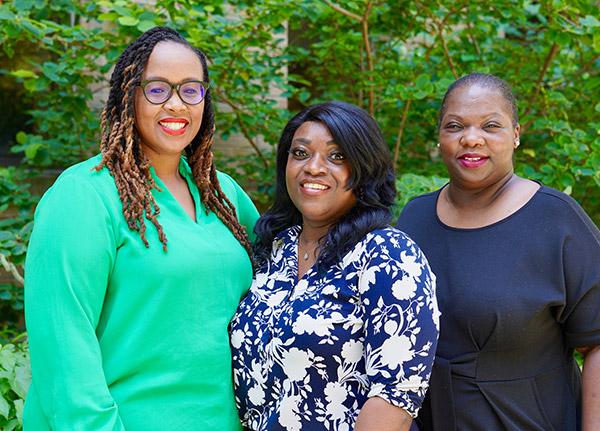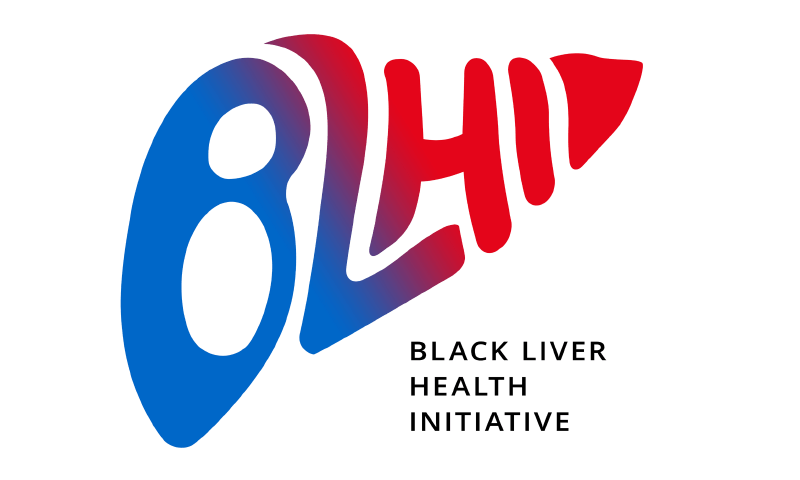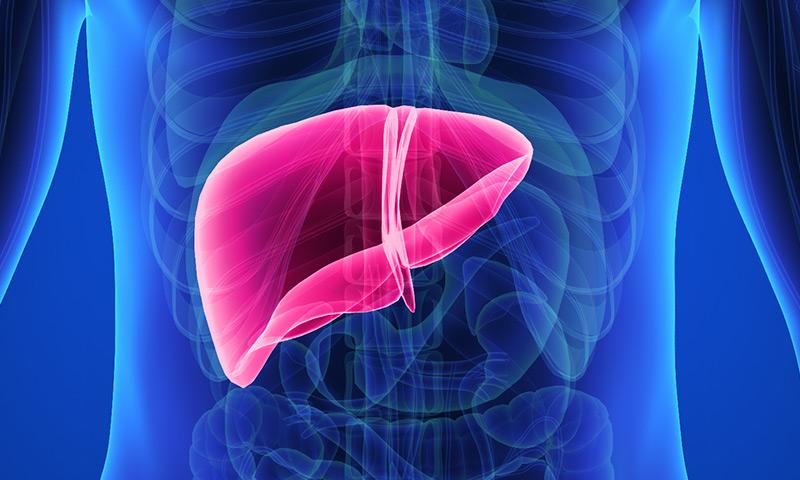
The Center for Liver Disease and Transplantation at NewYork-Presbyterian is committed to identifying and addressing transplant disparities for Black individuals. Our goal is to address both new and historic barriers to care through enhanced engagement with the Black community: listening, building awareness, providing education, increasing access, and advancing transformational transplant care.
Pictured (left to right): Co-founders Veronica Roye, DNP, FNP-BC, Nicole Golden, DNP, FNP-BC and Monica Nelson-Kone, BSN, RN.

Chronic liver disease is the 9th leading cause of death among Black Americans1. Black men are 60%2 more likely to have liver cancer than White men, and Black women are 40%3 more likely to die from liver cancer than White women. Despite the prevalence of liver disease in this population, Black Americans are less likely to receive accurate and timely diagnosis4 and further unlikely to be referred to a specialist5 for the best care. In response to these barriers, the Center for Liver Disease and Transplantation has developed an initiative to engage and promote liver healthcare equity in the Black community.

Webinar
A New Beginning : The Possibilities of Liver Transplantation
Date & Time: Thursday, Nov. 18, 2021, 6:30pm-7:30pm ET
Imagine needing a liver to live, then receiving one through the selflessness of someone who’s passed on, or a portion of a loved one’s liver so the both of you can lead healthy lives. Now imagine that you could provide this gift of life for someone else. If you are interested in learning more, join the Black Liver Health Initiative for an informative, interactive, virtual conversation with Columbia and Weill Cornell’s finest liver doctors, nurses, and patients to learn about one of our most precious possessions - our liver!
Black Liver Health Initiative
Black Liver Health Initiative: Key Activities

Access
- Expand clinical outreach to include underserved minority neighborhoods
- Support community providers to decrease the length of time to specialty referral for Black patients with liver disease.

Awareness
- Increase health literacy by educating the Black community through culturally competent health literacy strategies
- Increase knowledge regarding treatment options for liver disease.

Advancements and Research
- Engage in research that is specific to the Black community with liver disease.
- Advocate for policy changes to decrease barriers to liver transplantation.

Mitigating Medical Mistrust
- Commitment to ongoing internal cultural competency trainings for medical providers and staff.
Related links
Center for Liver Disease and Transplantation
References
1, 2, 3Office of Minority Health. (3/13/20). Retrieved from https://minorityhealth.hhs.gov/omh/browse.aspx?lvl=4&lvlid=17
4Nguyen, G. C., & Thuluvath, P. J. (2008). Racial disparity in liver disease: Biological, cultural, or socioeconomic factors. Hepatology, 47(3), 1058-1066. doi:10.1002/hep.22223
5Mathur, A. K., Sonnenday, C. J., & Merion, R. M. (2009). Race and Ethnicity in Access to and Outcomes of Liver Transplantation: A Critical Literature Review. American Journal of Transplantation, 9(12), 2662-2668. doi:10.1111/j.1600-6143.2009.02857.x



